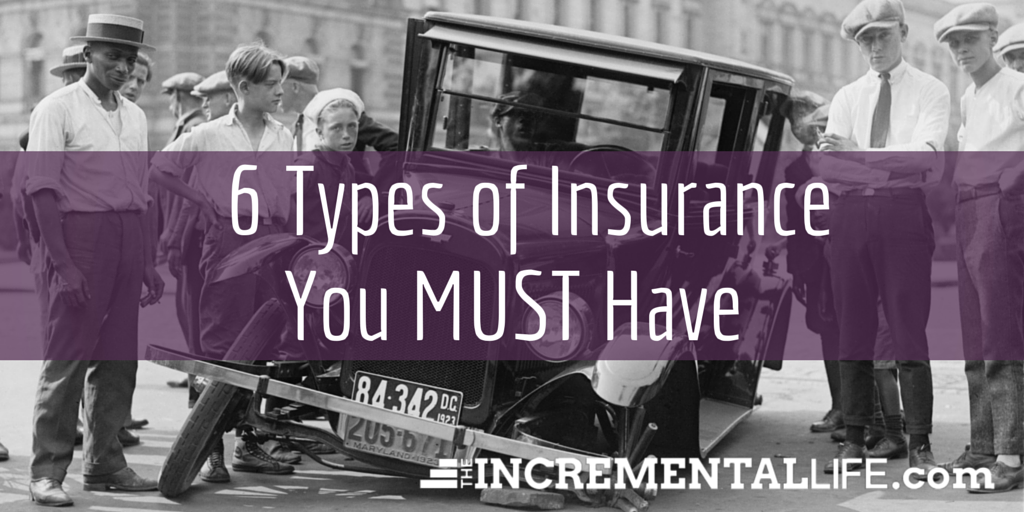Like most new employees, I remember when I got my first job and just how little take home pay that job afforded me. Even if you knew the facts in your head, I’m sure you were probably shocked at how much of your paycheck was taken out for taxes and social security. I’ll bet you sometimes wondered if the job was worth what little you were able to deposit in the bank.
As I grew and learned more about how the world worked and how to be a responsible adult I realized the need for the many different types of insurance available to me and my family. Unlike taxes, I had a choice whether to purchase insurance or not, and how much coverage I purchased. Admittedly, there were some insurance purchases made over the years that we either avoided altogether or just purchased the cheapest option we could find so we could keep more money in our pockets.
In reality, we persuaded ourselves to be satisfied with little or nothing in terms of insurance coverage because we were deep in debt and barely making it from month to month at times. We were satisfied with “good enough” without realizing that what we had purchased was anything but sufficient for our needs. Bankruptcy and ruin was only a minor disaster away.
When, Not If, Disaster Strikes
Dave Ramsey teaches that the purpose of insurance is to transfer risk. Insurance is an added expense and is rarely exciting, but how does it feel knowing you have it when you need it? Insurance is often called “coverage” because it covers expensive financial outlays we could probably never afford on our own.
Please don’t fool yourself into thinking you can get by without these six different types of insurance. Don’t believe yourself immune or invincible from life’s unforeseen accidents and tragedies. Above all, don’t make those accidents and tragedies worse by not getting coverage now while you can.
6 Types of Insurance You MUST Have
- Health Insurance—Yes, this is a hot-button issue, and according to current law not something you can avoid purchasing without a penalty. I also understand that health insurance is expensive, and has become more expensive for many people over the last couple of years. Either way, you should get the best health insurance you can afford for yourself and your family. Also, check into health care sharing options that are exempt from Obamacare and see if any of them are a good fit for your family. (My family and I are members of Samaritan Ministries. We’ve received top-notch coverage and saved thousands of dollars!)
- Life Insurance—If you’re an adult, you need life insurance. If you have dependents who count on you for what you contribute to the monthly income, you should get ten times your yearly salary in Term Life Insurance coverage. That way, your loved ones can invest the insurance payment and live off of the interest. Even if you don’t have any dependents, you should at the very least have enough insurance to cover any unforgivable debts and your burial expenses.
- Homeowner’s/Renter’s Insurance—You’ve got stuff, and what happens if you stuff gets lost, damaged, or stolen? Even if you consider yourself a relatively non-materialistic person, simply replacing your basic necessities can get expensive quickly. Imagine having to replace your entire house!
- Auto Insurance—You should never drive around without auto coverage. You should be sure you have adequate liability coverage at the very least (the insurance portion that pays for the other person’s damages). Unless you’re driving an old clunker that you can easily replace with cash on hand, you should have adequate collision coverage as well (the insurance portion that pays for damages to your car).
- Disability Insurance—Try to get disability insurance through an employer or some sort of trade organization. If it’s not available, you need to look into Own-Occupation Disability. Think it through and ask yourself what would happen if you were injured in some way to make it impossible to adequately perform your occupation, even temporarily. How would you get by? Where would your income come from? You need disability to help bridge the gap when you’re unable to work.
- Long-Term Care Insurance—You don’t need to purchase this type of insurance until you’re 60 years old, but you need to have it on your radar. Almost 70% of people over the age of 65 will need at least a few months of long-term care during their lifetime. Do about 10 minutes of research and you’ll soon learn that long-term care can costs thousand per month!
Don’t put off getting the insurance coverage you need. You’ll never regret a single penny paid when the coverage is there when, not if, you need it.
posted by

